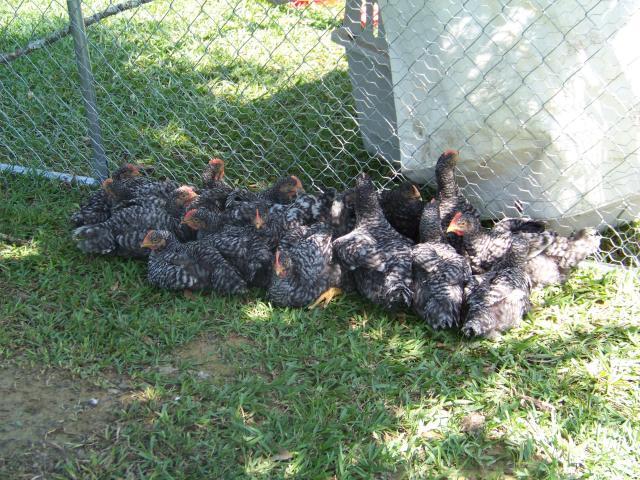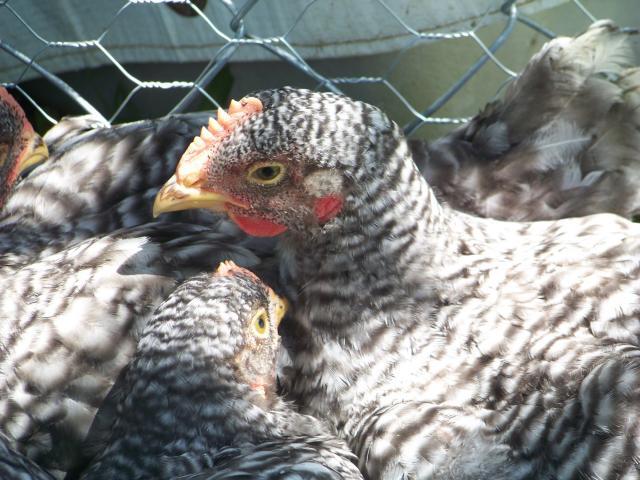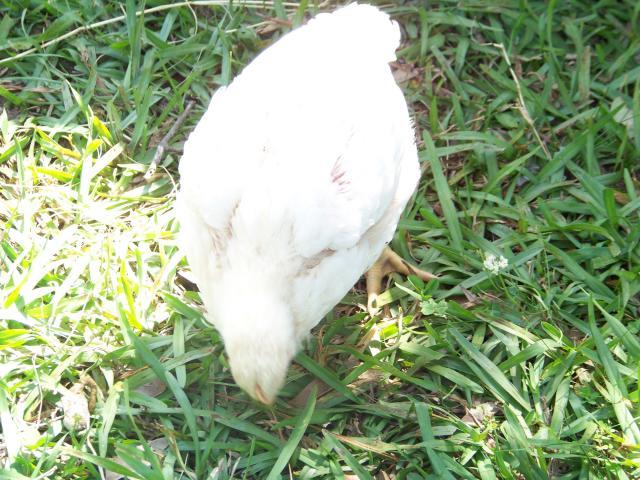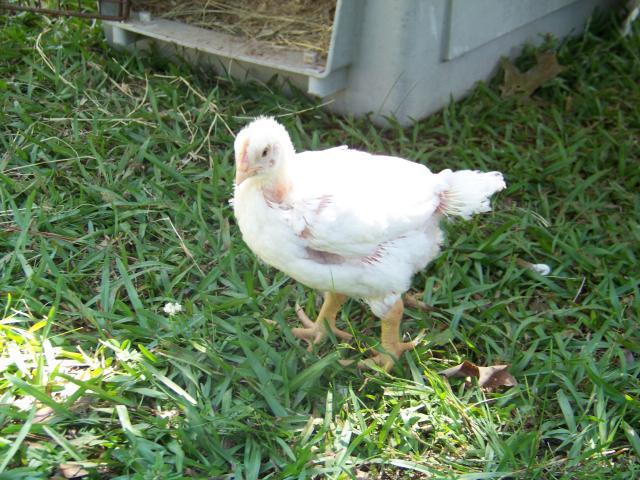- Mar 14, 2007
- 101
- 0
- 139
Here are a few pics of my barred silver meat birds (about 5 weeks now), and my cornish x (about 3-3.5 weeks now).
Here are some lazy silvers taking a rest from running the pasture.

Here is a close-up of one of the barred silvers.

Now here are some of my cornish x out in their pen enjoying the gorgeous weather!



I think I actually have enjoyed the cornish more up until now because they just aren't as frisky and aggressive. I find the barred silvers fight a lot (all roosters), whereas the cornish are just too lazy to do that. However, my cornish do enjoy being out and eating grass. They flap their wings and jump around and seem to enjoy it. I just like their temperament a little better.
Here are some lazy silvers taking a rest from running the pasture.

Here is a close-up of one of the barred silvers.

Now here are some of my cornish x out in their pen enjoying the gorgeous weather!



I think I actually have enjoyed the cornish more up until now because they just aren't as frisky and aggressive. I find the barred silvers fight a lot (all roosters), whereas the cornish are just too lazy to do that. However, my cornish do enjoy being out and eating grass. They flap their wings and jump around and seem to enjoy it. I just like their temperament a little better.


